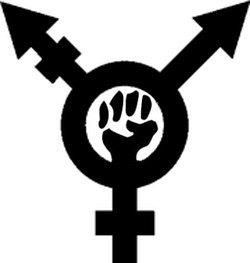The Nova Scotia provincial government has recently proposed amendments that will add Gender Identity and Gender Expression as a protected category under the Nova Scotia Human Rights Act.
In many ways this is a cause for celebration. Yesterday, Nov. 20, marked the Transgender Day of Remembrance, a day when we remember trans people (mostly trans women of colour) who we’ve lost this year to murder, suicide and the crushing weight of living in this transphobic world.
Having Gender Identity and Gender Expression included in the Human Rights Act will send a clear message that our government recognizes that the lives of trans people are valuable and important. And the addition of the language will offer trans people legal protection in instances of direct and individual acts of discrimination, such as being denied housing, education or employment because they are trans.
However, I think that it is important that we also take this moment to remember that gaining legal protection should not, and will not, be an end point in our fight for equality. I’m sure that many of us can agree that the addition of Sex, Race and Sexual Orientation to the Nova Scotia Human Rights Act and the Canadian Charter of Rights and Freedoms did not end sexism, racism, and homophobia. Legal protection does not end oppression and I think that it is important to remember that there is a stark difference between legal equality and day-to-day lived experiences.
I think that the push for legal equality and protection can be useful when placed within a broader understanding of how discrimination operates in Canada. Most oppression is not individual (as in being fired for being trans) but rather systemic (as in that a majority of trans people are under-employed and under-waged). A legal approach only addresses incidents of individual discrimination, and moreover, legal recourse is only available to those people who are able to economically access the judicial system (which is a real barrier considering that many trans people live below the poverty line).
A legal approach does not challenge larger systems of oppression, and can actually serve to reinforce systems that perpetuate violence against trans people such as prisons and the police.
Therefore, while I think that it is important that we take this moment to celebrate the addition of Gender Identity and Gender Expression to the Human Rights Act, I think that it is also important that we do not deceive ourselves into thinking that this is the last step in ending transphobia and cissexism.
Rather, we need to recognize that the addition of this language will only be useful within the context of a larger struggle for cultural and economic changes that will tangibly affect the daily lives of trans people. I suggest that we harness the momentum of this legislation to push our government further, and that we use this energy to help us continue our fight.
So what we can we do?
We need to tell our provincial government that if they truly want to protect and improve the lives of trans people it needs to provide public funding for sex reassignment surgery.
Because of the reality of systemic oppression, trans people have disproportionate difficulty accessing employment, education, housing, and healthcare. What this means is that since there is currently no public funding for trans-related surgeries anywhere in the Maritimes many people can not afford to pay for surgery on a $10/hour wage (or less). Most importantly, this means that these often life-saving procedures are unavailable to the people who need them.
Our government has recognized that trans rights are human rights, so now it's time to put that into action and extend the human right of universal health care.
We need to tell our government that we demand affordable and accessible healthcare for everyone.
We need to tell our government that we want it to make good on its promise to protect trans people.
And we need to tell our government that it is only once policies such as this are in place that the addition of Gender Identity and Gender Expression to the Nova Scotia Human Rights Act will actually protect the quality of life of trans people and truly be more than an empty stab at formal equality.
I want all of us to live in a world free from transphobia and cissexism.
This is only the beginning – our fight is far from over.



